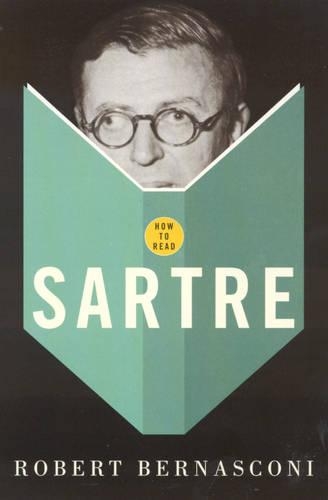
How To Read Sartre
(Paperback)
Publishing Details
How To Read Sartre
By (Author) Robert Bernasconi
Granta Books
Granta Books
1st December 2006
United Kingdom
Classifications
Tertiary Education
Non Fiction
194
Physical Properties
Paperback
128
Width 128mm, Height 197mm, Spine 6mm
96g
Description
Jean-Paul Sartre is best known as the preeminent philosopher of individual freedom. He is the one who told us that we are totally free. Robert Bernasconi shows how the early existentialist Sartre became in stages the political champion of the oppressed. Extracts are drawn from the full range of Sartre's writings: the novel Nausea, the drama No Exit, the political essay Communists and Peace, as well as the major philosophical texts, Being and Nothingness, and Critique of Dialectical Reason. They show why of all major twentieth century philosophers Sartre was the one who most easily passed beyond the confines of the academy to a general readership.
Reviews
Sartre is existentialism- the most popular philosophy of the modern day Renewed interest in this 'personality' philosopher with the recent publication of Hazel Rowley's Tete-a-Tete: The Lives and Loves of Simone Le Beauvoir and Jean-Paul Sartre (read on BBC Radio 4 Book of the Week) Adding to 10 other titles currently available in the How to Read series
Author Bio
Robert Bernasconi is Moss Professor of Philosophy at the University of Memphis. His books include The Question of Language in Heidegger's History of Being and Heidegger in Question. He has edited anthologies on race and collections of essays on Levinas and Derrida.
